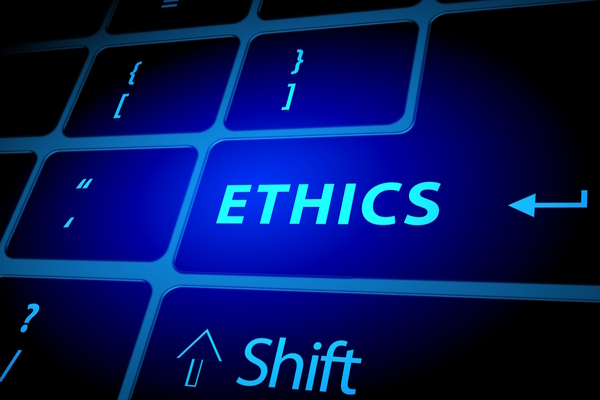Climate litigation: where does it go from here?

Teja Pisk at Stevens & Bolton argues that firms need to be on high alert for ESG activism
Environmental charity ClientEarth made headlines this summer when its attempt to hold the directors of Shell personally liable for Shell’s environmental policies fell at the first hurdle.
As a shareholder in Shell, ClientEarth was entitled to apply for permission to bring a derivative claim against Shell’s directors under the Companies Act 2006. Such claims require judicial permission to proceed and, in this instance, permission was not forthcoming.
The role of the court
The court’s decision in itself was not surprising. The bar to obtaining permission to proceed with derivative claims is extremely high and this was a novel activist investor claim.
Of greater interest, particularly for other activist investors, are the comments from the judge, Mr Justice Trowers, which indicate a reluctance on the part of the courts to hold directors of large companies to account for climate related decisions and a reluctance to assist activist investors.
Mr Justice Trowers found that ClientEarth was unable to make out the case that the directors had breached their duties, noting that directors of a company of the size and complexity of Shell have to take into account a range of varied and competing considerations and that this delicate balancing act is a “classic management decision with which the court is ill-equipped to interfere”.
He also noted ClientEarth’s likely ulterior motivations, beyond those of a genuinely concerned shareholder, as a reason to refuse permission. In his view, ClientEarth’s motivation was “ulterior to the purpose for which a claim could properly be continued”.
Only the beginning?
Despite the court’s reluctance to allow ClientEarth’s derivative claim to proceed, the decision does not herald the end of activist investor claims. We expect to see further attempts to hold both companies to account as groups and individuals continue to test the boundaries of current legislation.
Activists will remain emboldened by the fact that the legislative landscape in the UK is developing at a rapid pace – making it easier to formulate claims against companies who have not been treading the line to date – and the fact that the English courts do seem willing to entertain other climate and ESG-related actions.
For more risk averse activists, whilst the legislative landscape develops, it seems that more ‘traditional’ challenges such as judicial review and breach of duty claims are likely to yield greater chances of success.
Alternative legal routes
Judicial review is the process by which the courts review the lawfulness of decisions and actions of public bodies. It is a challenge to the way a decision has been made, rather than a claim that the decision itself is wrong.
Greenpeace and Uplift have recently challenged the government’s decision to issue new oil and gas licenses. At a hearing in July, Greenpeace and Uplift argued that the government had failed to properly assess all of the emissions (including downstream emissions) that the new licenses would generate. The court’s decision is awaited but Greenpeace and Uplift can be reasonably confident.
The bar to securing permission to apply for judicial review in the first place is very high. As the court must be satisfied that there is an arguable ground for judicial review which has a real prospect for success, it follows that there must be real substance to Greenpeace and Uplift’s arguments.
ClientEarth are currently hoping to bring their own judicial review challenge against the FCA, alleging that the FCA acted unlawfully by approving the listing documents of Ithaca Energy plc (an oil and gas company) when those documents failed to appropriately describe the climate-change risks facing the company. Whether the court will grant ClientEarth permission to proceed is yet to be seen.
The potential of breach of duty claims can be seen in the recent cases of Okpabi v Royal Dutch Shell PLC and Vedanta Resources PLC v Lungowe, in which claimant groups sought redress in the English courts against UK-based parent companies for alleged environmental harm caused by those companies’ foreign subsidiaries.
In both cases, the Supreme Court held that the UK parent companies had exercised a sufficient degree of control over the foreign subsidiaries to establish a duty of care.
The approach taken by the Supreme Court suggests that the English courts are applying a relatively low threshold for determining whether environmental claims of this nature can proceed to trial, something which is likely to make the English courts an attractive forum for bringing similar claims.
A wave yet to break
Climate and ESG litigation is certainly not going away. On the contrary, we expect to see more and more claims and challenges in the English courts in the coming years, particularly as the legislative landscape develops.
Companies and directors would be well advised to remain mindful of the increasing risks of climate change and ESG litigation and to take action now to avoid exposure to costly future claims that would not only be financially damaging, but reputationally damaging.
Teja Pisk is a Senior Associate at Stevens & Bolton
Main image courtesy of iStockPhoto.com

Business Reporter Team
Most Viewed
Winston House, 3rd Floor, Units 306-309, 2-4 Dollis Park, London, N3 1HF
23-29 Hendon Lane, London, N3 1RT
020 8349 4363
© 2025, Lyonsdown Limited. Business Reporter® is a registered trademark of Lyonsdown Ltd. VAT registration number: 830519543





